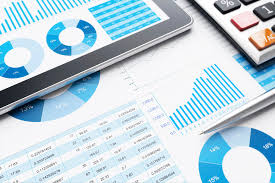As the covid-19 pandemic has reminded us, absolutely anything can happen in life. All the predictions of the world can’t always see what’s around the corner which is why discussing trading and risk is important. Lots of people are investing or trading, either to make a little extra money in general or are wondering about getting on the bandwagon because they have a little extra time now. But with most industries having more questions than answers, and frequent news concerning the stock market, should you invest in a crisis? How can you meaningfully invest in a crisis?
Why and When Does the Market Change?
Even before Covid-19 truly affected the nation, there was talk of the markets reacting. Rumours can cause skittish investors and traders to pull out and panic affects the market greatly, leading to crashes which we see reported in the media. Historic market panics demonstrate that uncertainty and change tends to happen early on but quickly level out, often before the panic really hits the general public.
Profitable Companies do Better
Some businesses have an easier time making profits than others, who have an easier time burning through cash. Companies who rely on investors generally, rather than their own profits, will likely suffer the most from this time and if skittish investors pull out, it could be detrimental to everyone. That being said, indebted companies, though riskier, also have more potential reward.
What to Look For
There are two general options when investing in a crisis. You could either hunt for companies with big share price falls in the last few weeks who are generally financially strong and profitable; able to survive short-term shocks and provide reward. Alternatively, you could invest in the businesses who really need it as, if it catches on and the economy recovers quickly, there’s potential for good gains – but this is undeniably the risker option.
Acknowledging Risk
Whilst some brokers encourage everyone to try their hand at trading and investing, CFI are clear about risk with all their clients and encourage careful and conservative trading, as there is no getting away from the fact of risk. CFDs are complex instruments and come with a high risk of losing money rapidly due to leverage. The vast majority of retail investor accounts lose money when trading CFDs. You should consider whether you understand how CFDs work and whether you can afford to take the high risk of losing your money.
It’s important to remember that nobody can predict the length or the outcome of this pandemic, but we’re all in the same boat and it could be a good opportunity to invest in quality businesses who you previously couldn’t afford. Investing in a crisis is a rare opportunity. Staying informed and level-headed will be your greatest asset.

